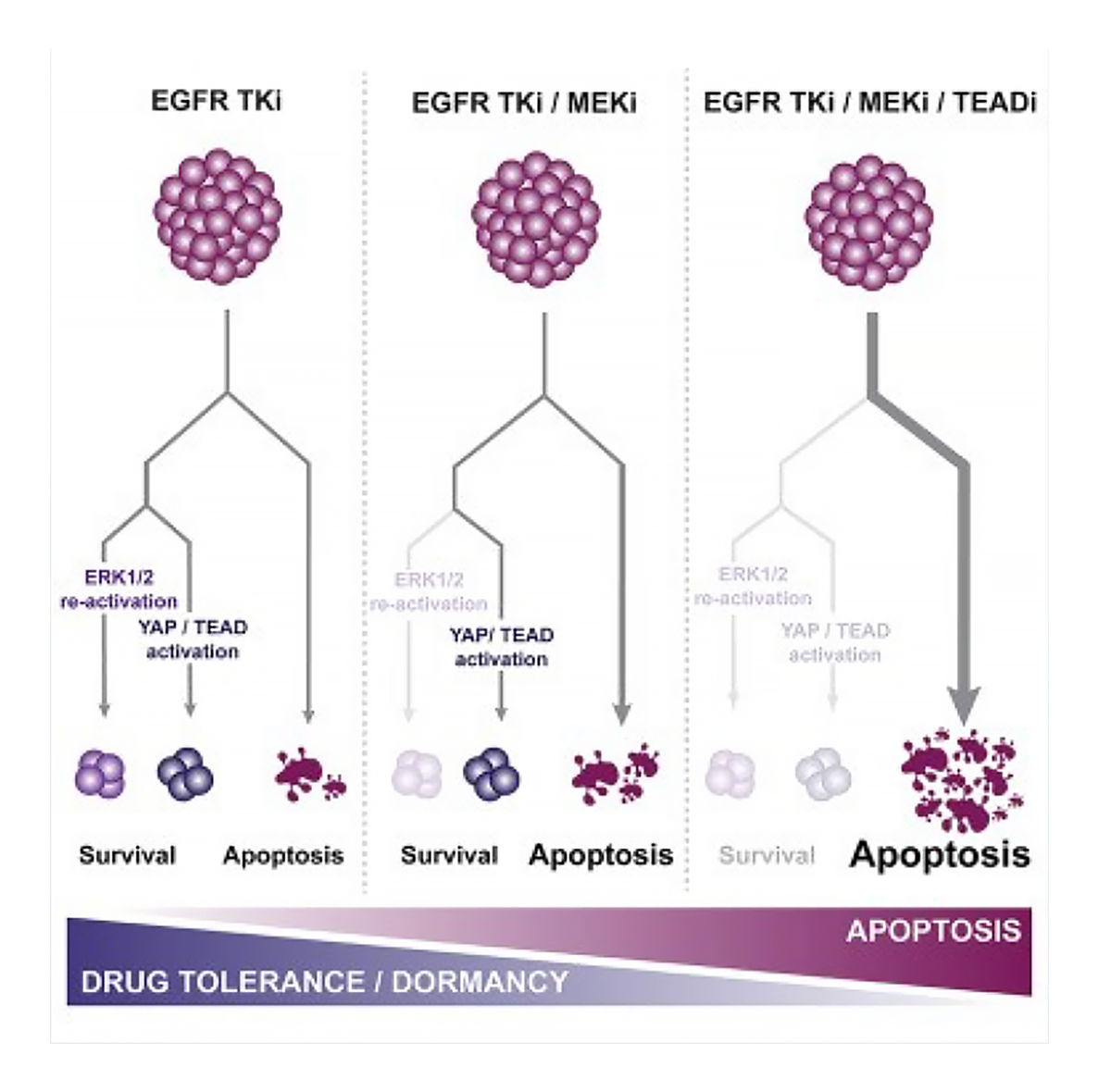Understanding minimal residual disease (MRD)

While many targeted therapies have the capacity to achieve impressive responses in lung cancer, a minute population of drug-tolerant malignant cells (or Minimal Residual Disease) can persist and enable the emergence of resistance, ultimately resulting in relapse and few therapeutic options for patients.
- Our lab has previously showed that targeting YAP/TEAD following genotype-directed therapy, such as the EGFR/MEK TKI combination, may be a strategy to augment the early drug-induced apoptosis and consequently reduce residual disease (Kurppa K. et al., Cancer Cell, 2020).

- We continue to examine mechanisms whereby cancer cells of various genotypes evade initial apoptosis in response to drug treatment or maintain tolerance in the presence of a drug.
- Informed by our findings, we explore novel targets involved in MRD establishment and maintenance, and develop therapeutic strategies against them using high-throughput screening methods.